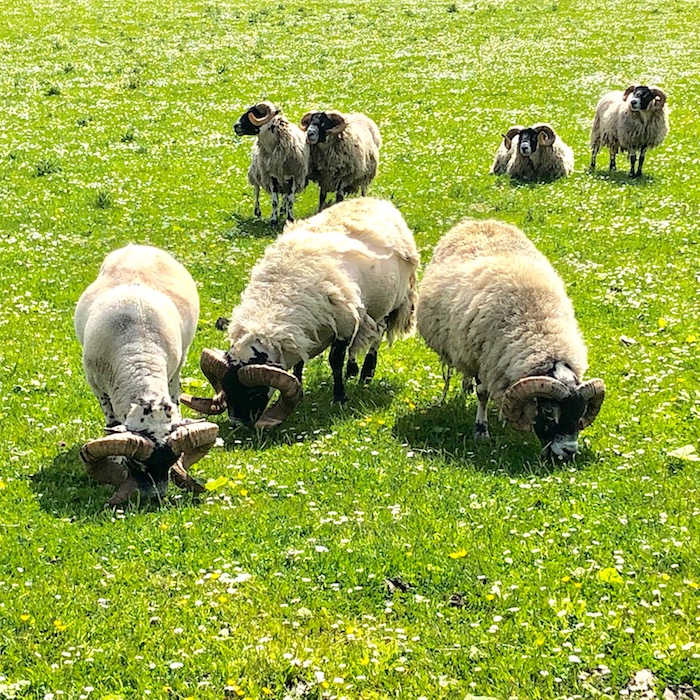We all know this Sunday’s psalm. We’ve heard it in movies and on TV shows and at funerals. We’ve heard it in funerals in movies and on TV. We’ve prayed it in times of stress, or maybe, as I often do, to go to sleep at night. Although most of us go automatically to the KJV of it, with its magisterial language, translators are continually rewording it, trying to get the nuances of the psalm right.
For instance, listen to these different interpretations of the first verse alone:
The Lord is my shepherd; I shall not want. (NKJV)
Yahweh is my shepherd; I lack nothing, (New Jerusalem)
O God, You are my shepherd; I shall not be in want. (St. Helena Psalter)
O my Beloved, You are my shepherd, I shall not want; (Nan C. Merrill, Psalms for Praying)
The Lord takes care of me as his sheep; I will not be without any good thing. (Bible in Basic English)
God is my Shepherd! I don’t need a thing! (The Message)
The image of the shepherd who is devoted to his or her flock is an image for leadership and governance throughout scriptures. When it is applied to God, it becomes yet another startling metaphor for its listeners, who knew that shepherds were humble folk, and most of the time when we think of God, “humble” doesn’t immediately come to mind. But maybe it should.
Too often, we think of God and emphasize might, power, vengeance. Smiting. I love that scene in Bruce Almighty when an infuriated Bruce yells up at heaven, “Smite me, O mighty SMITERRR!” Of course, he then gets smacked by a semi, but only so that he and God can have a talk—so he will stop bleating long enough to listen TO the Shepherd’s voice.
God’s insistence on being associated with the concerned, caring shepherd who knows us intimately and loves us deeply is one that we need to hear and treasure no matter how many times we have heard those words in the 23rd Psalm or every year during the Great 50 Days of Easter. Notice, though, that God goes from being talked about in the third person to be addressed personally in the second person a third of the way in. This is a personal relationship. But you’ll notice that the relationship isn’t just one way—it’s up to the sheep to follow the shepherd, not wander too far off, listen when he or she calls.
For us right now, who face a time of unprecedented anxiety and uncertainty in this time of global pandemic, being asked to shelter in place and remain out of gatherings of more than ten people, it is nonetheless vital for us to remember that we are all part of one large, beloved flock, under the loving gaze of the Lord Our Shepherd (Adonai Ro’i in Hebrew). And so, today, and in the days to come, this is my prayer.
Prayer of the Blessed Sheep
God is our shepherd and provider,
You claim us as your own, and we are yours.
God leads us into pastures that supply all our needs;
You give us rest and security,And call us to share your peace with each other
And embody your light in the darkness.
God refreshes and revives our souls anew;
leading us into truth,
trusting us to follow and glorify God’s Namefor the sake of each other.
You shield us by your strength and vigilance;
when trials approach us,
we have no fear,
for You hold us in your hand
even when the darkness of death looms–your love, O God, never sleeps.
You provide a rich banquet for us even as enemies look on;
You have consecrated us and blessed us abundantly.
Your steadfast promise of love enfolds us,
and goodness and mercy are our sure companions
as You lead us through our lives.
We rest securely in your arms,
and our home is with You foreverand right now.
Amen.
The Rev. Leslie Scoopmire is a writer, musician, and a priest in the Diocese of Missouri. She is priest-in-charge of St. Martin’s Episcopal Church in Ellisville, MO. She posts daily prayers at her blog Abiding In Hope, and collects spiritual writings and images at Poems, Psalms, and Prayers.

